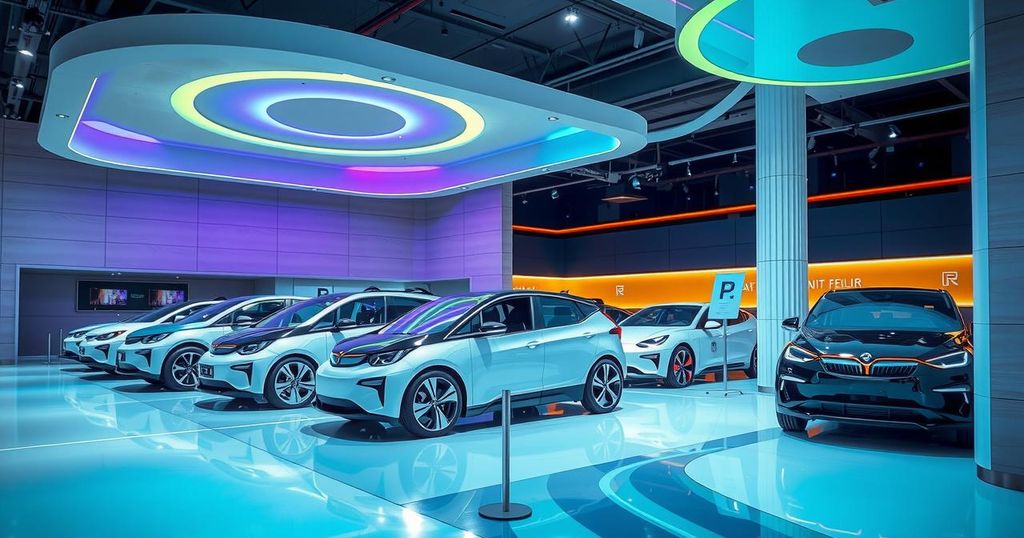Tesla to Launch Electric Vehicles in Saudi Arabia Amid Sales Decline

Tesla will commence selling electric vehicles in Saudi Arabia, with a launch event planned for April 10. This initiative arrives during a decline in global sales and growing competition from firms like BYD. Challenges include low EV market penetration in Saudi Arabia and backlash in the U.S. against CEO Elon Musk for his government role, which has negatively impacted the brand’s reputation and stock value.
Tesla is expanding its presence by initiating sales of electric vehicles (EVs) in Saudi Arabia, the Gulf region’s largest economy. This decision comes at a time when the company faces declining global sales and heightened scrutiny regarding CEO Elon Musk’s controversial government involvement. Tesla announced a launch event scheduled for April 10, where it will showcase its EVs and provide attendees with an interactive experience featuring the Cybercab and its humanoid robot, Optimus.
Despite this new venture, Tesla may encounter significant challenges in establishing market share in Saudi Arabia, where electric vehicles constitute just over 1% of all automobile sales, as reported by consultancy firm PwC. Tesla is entering a competitive landscape, marked by its first annual sales decline as a public entity, reflecting a drop of 1% last year.
Amidst intensifying competition in key markets, particularly in China, Tesla faces hurdles as BYD, a Chinese electric vehicle manufacturer, reported $107 billion in annual sales, surpassing Tesla’s nearly $98 billion. Additionally, BYD has introduced an ultra-fast charging system capable of adding 250 miles of range in just five minutes, overshadowing Tesla’s Superchargers, which require 15 minutes for a 200-mile range.
In Europe, Tesla’s sales also plummeted, with February reporting a 40% drop in vehicles sold compared to the same month in 2024, as per the European Automobile Manufacturers’ Association. In the United States, Musk’s controversial role in government—specifically reducing public sector jobs as the head of the Department of Government Efficiency—has alienated potential customers and contributed to a decline in used Tesla prices, despite rising interest in used EVs overall.
Furthermore, Musk’s government actions have incited vandalism against Tesla properties in the U.S., prompting the FBI to establish a task force aimed at addressing these violent incidents. Peaceful protests have occurred at multiple Tesla locations, with demonstrators voicing their discontent towards Musk’s government role. These issues have led many investors to pull away from Tesla, resulting in a 40% drop in the company’s stock since reaching an all-time high in December.
Tesla’s entry into the Saudi Arabian market represents a strategic move amidst declining global sales and mounting competition. However, the company faces considerable challenges, such as low EV sales in the region, strong competition from BYD, and ongoing difficulties in established markets. Elon Musk’s government involvement continues to deter potential buyers, leading to broader implications for investor confidence and stock performance. Tesla must navigate these obstacles to secure its foothold in the rapidly evolving automotive landscape.
Original Source: www.cnn.com




